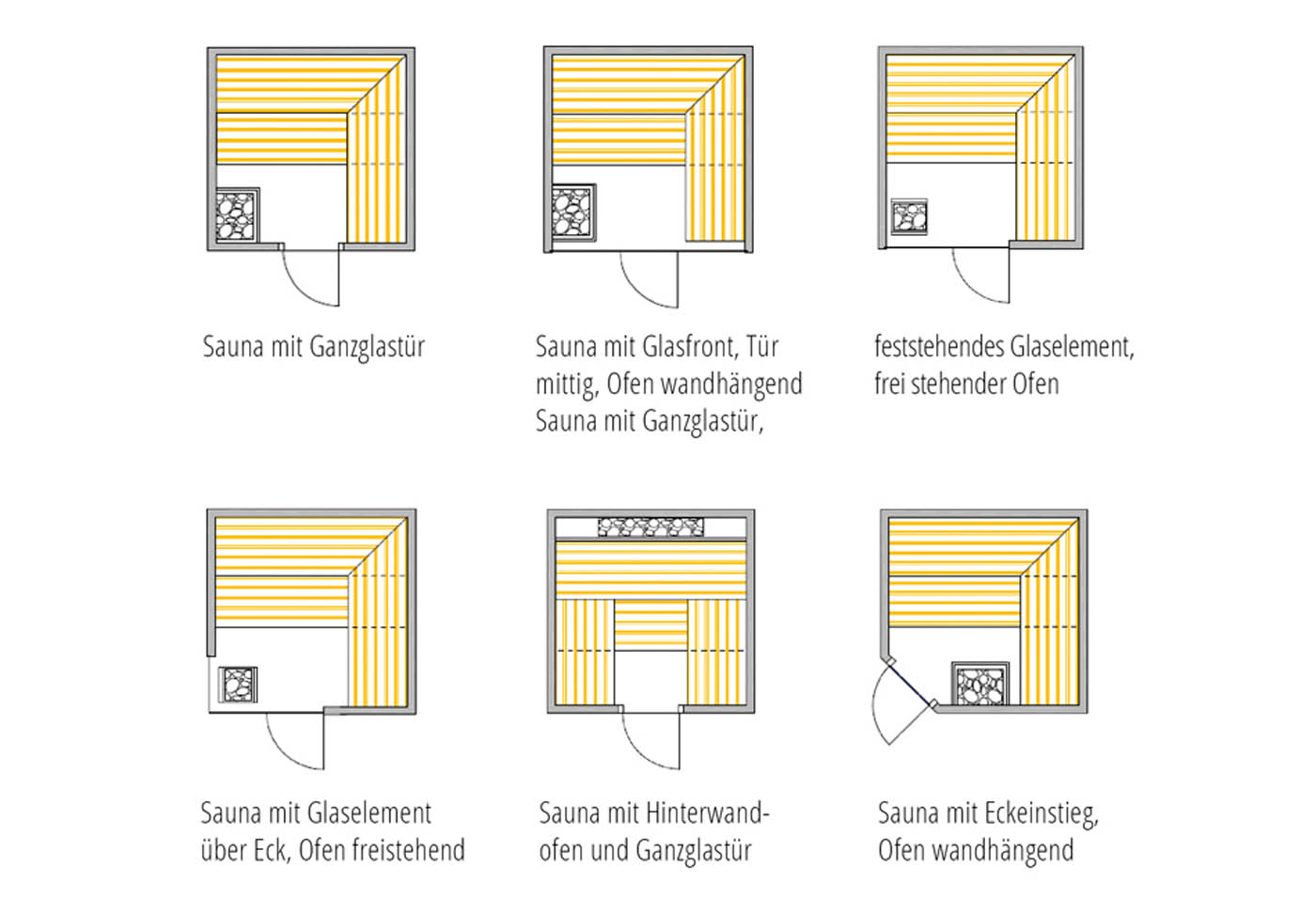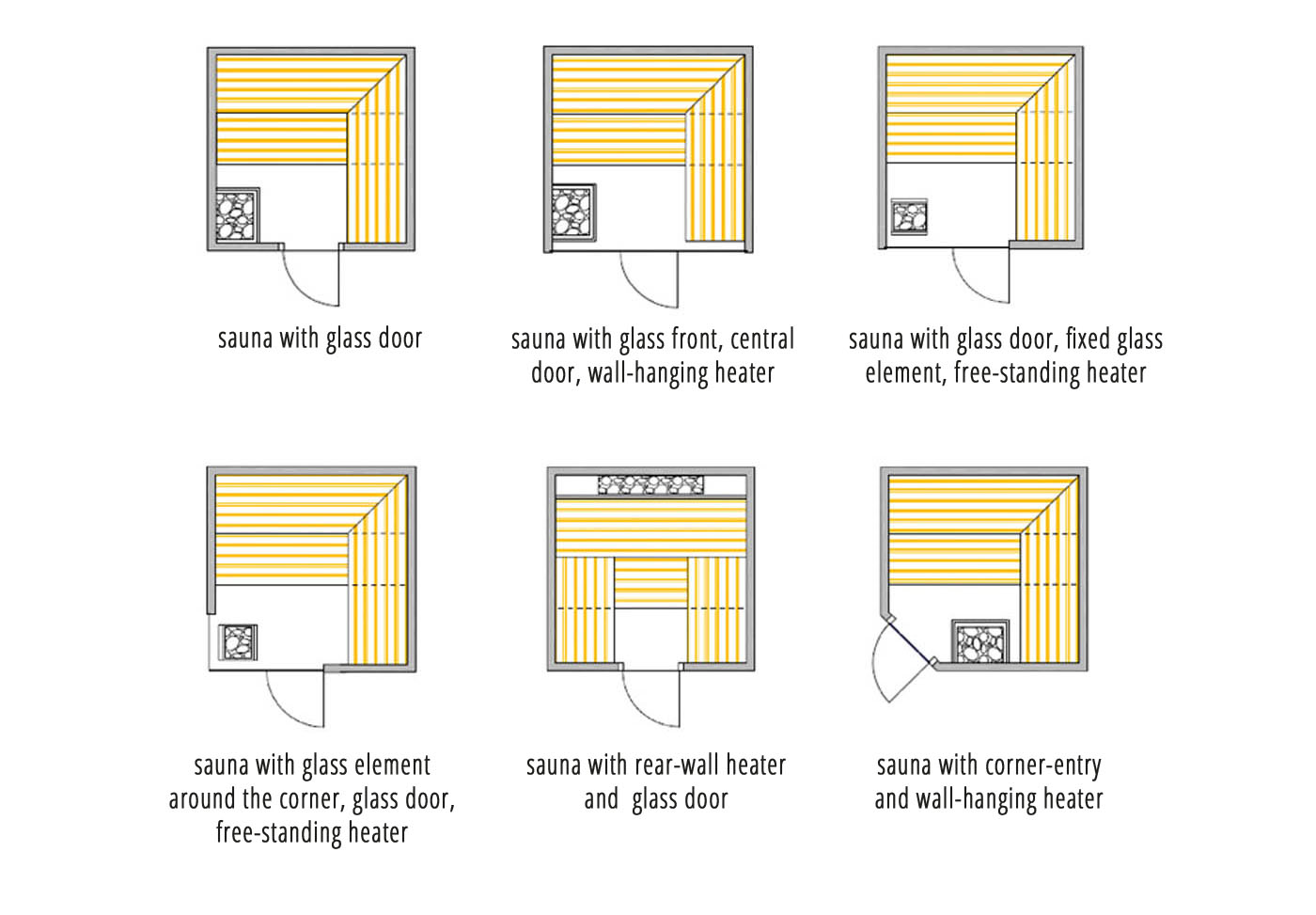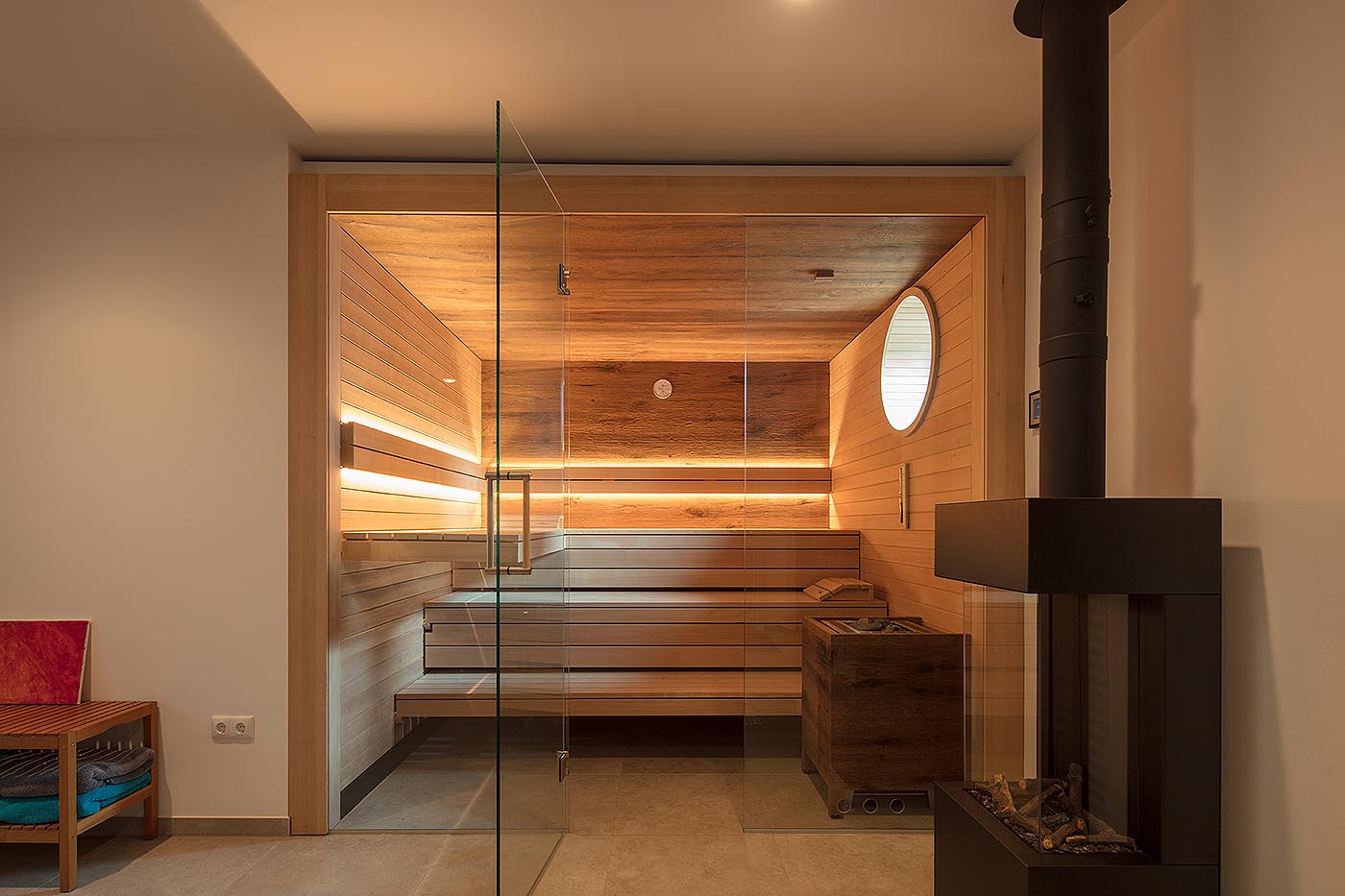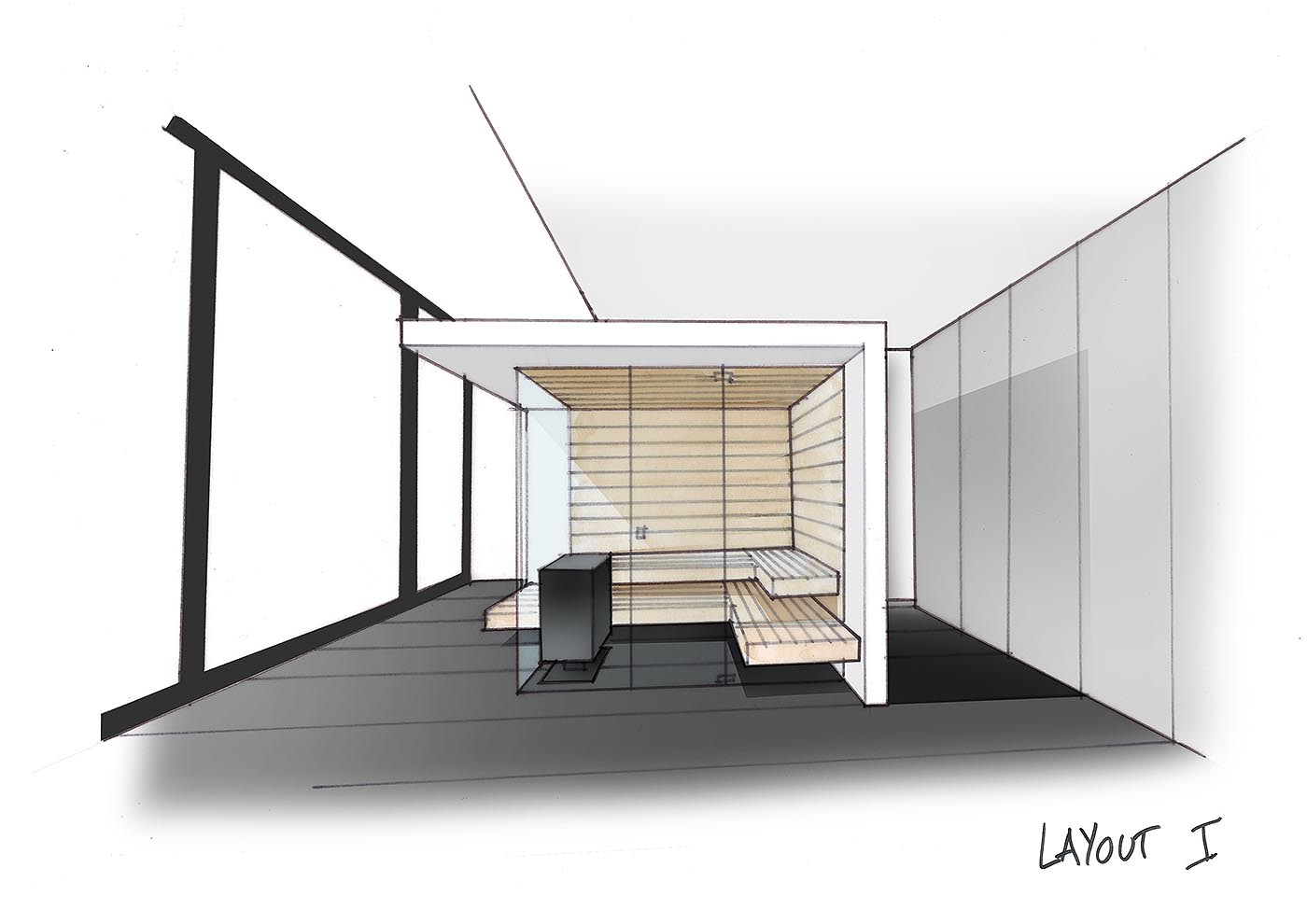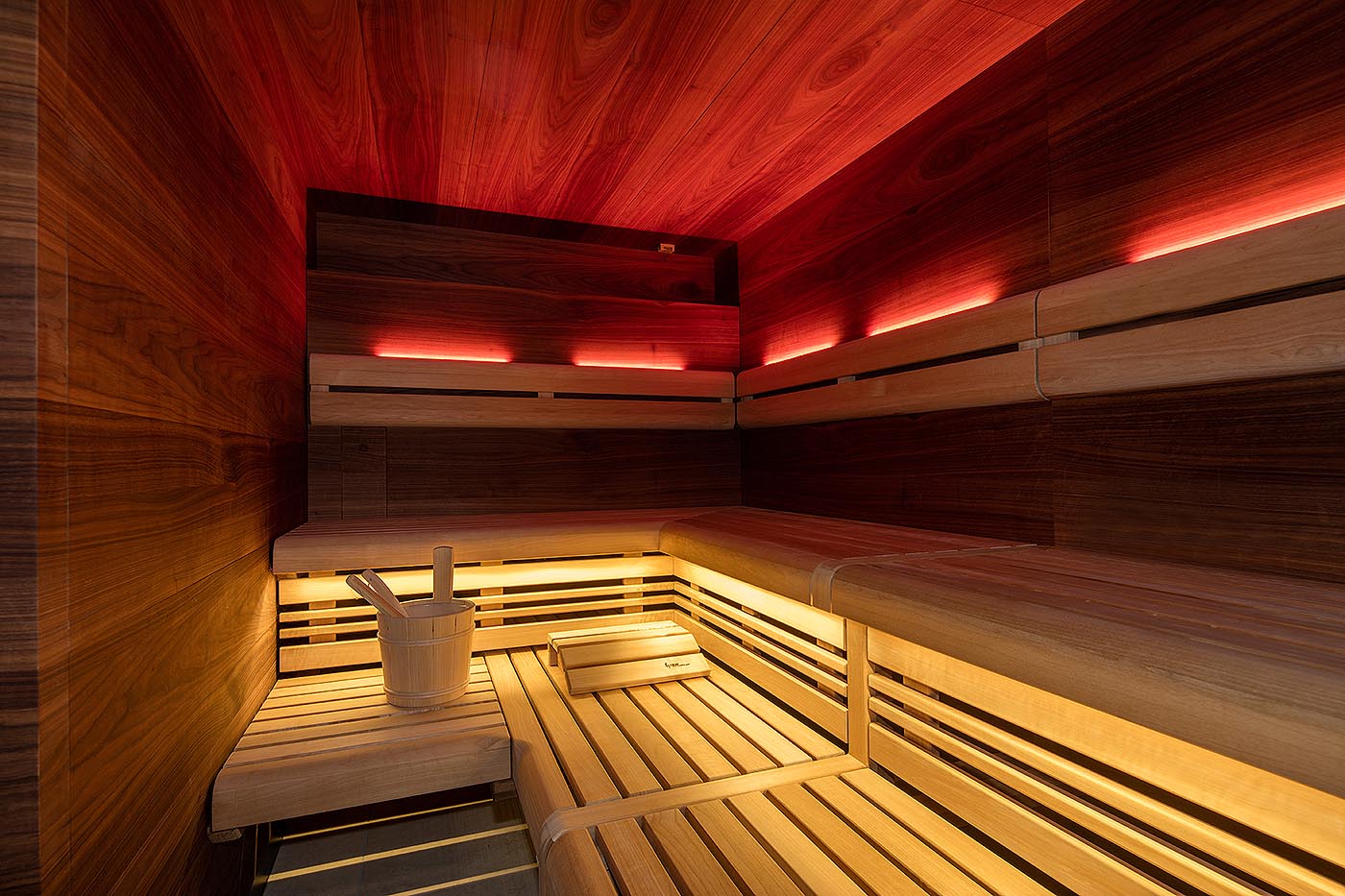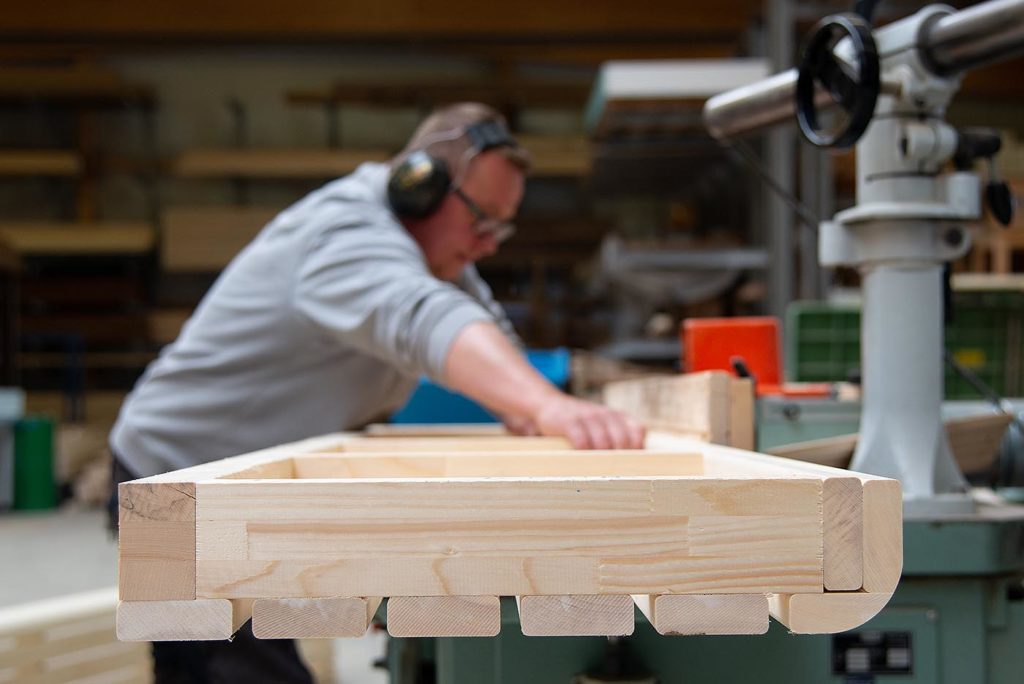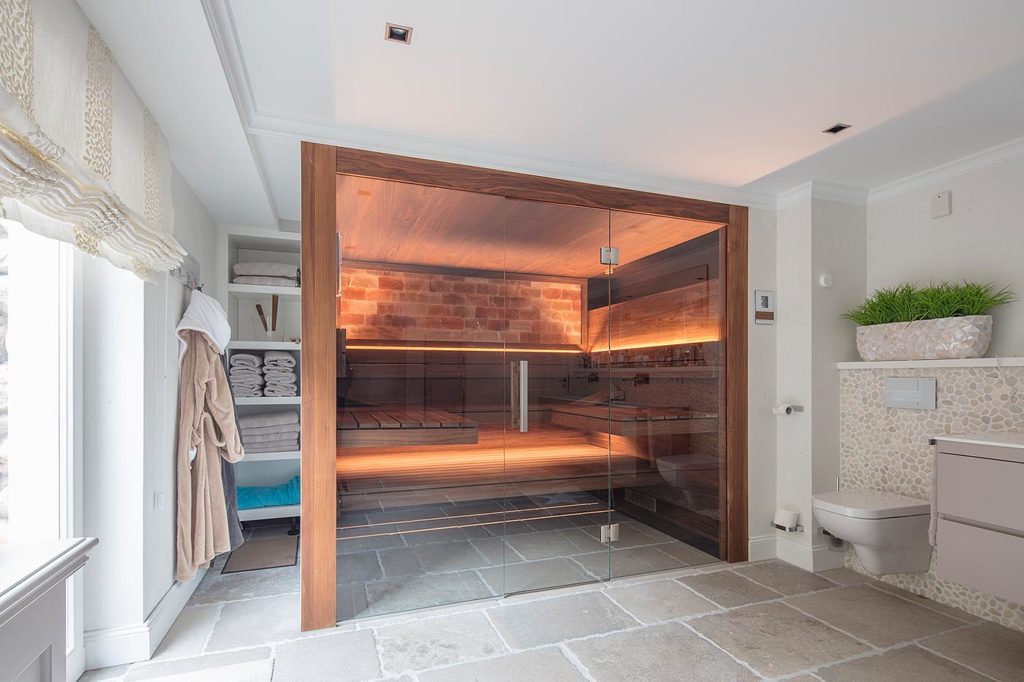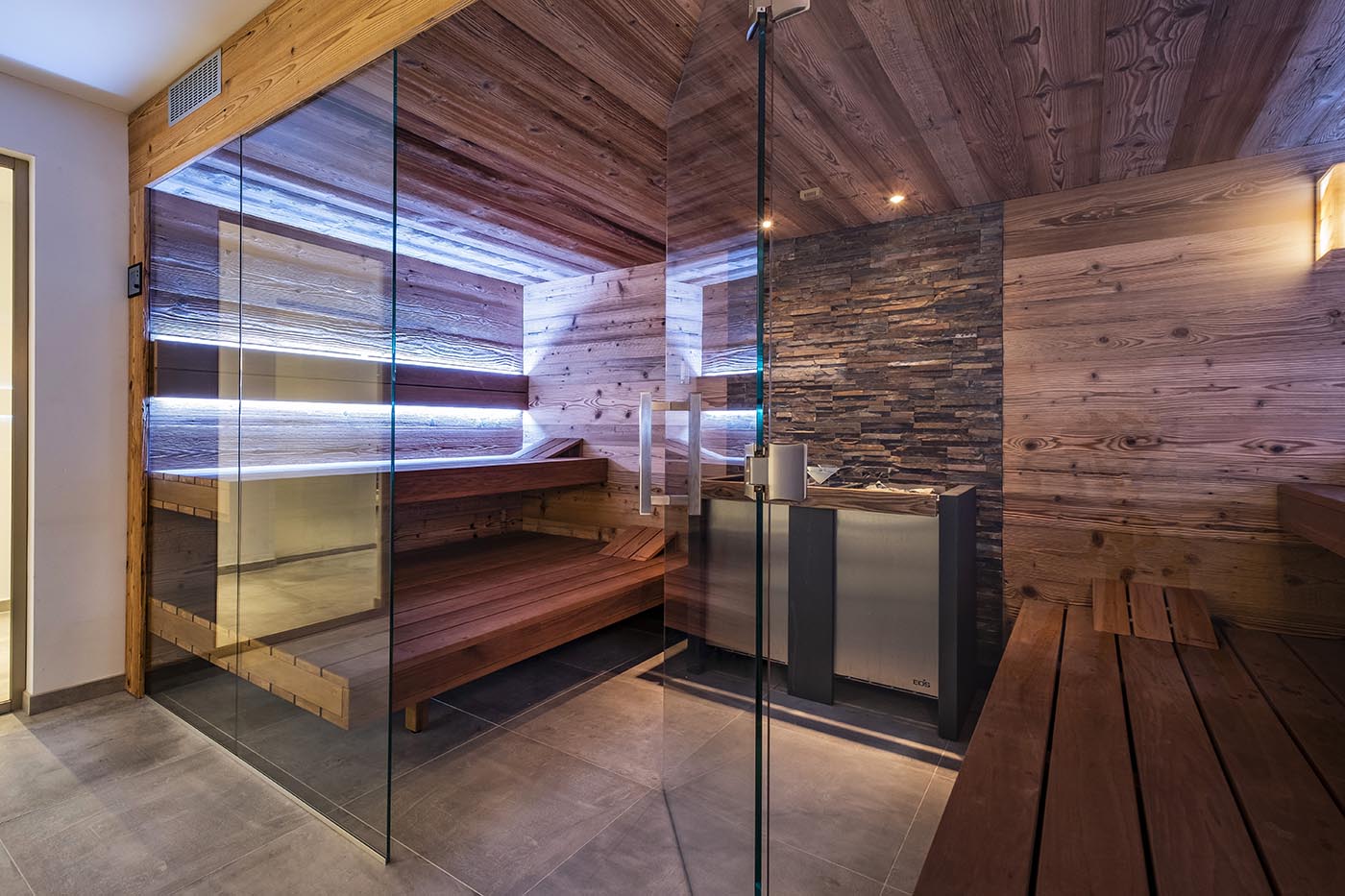
TOP 9: How to plan your indoor sauna for home:
- Location | Sauna type >
- Plans >
- Sauna size >
- Flooring >
- Power connection & cables >
- Sauna wood >
- Heater >
- Sauna with glass >
- Sauna manufacturers >
…or just talk to us. We plan for you:
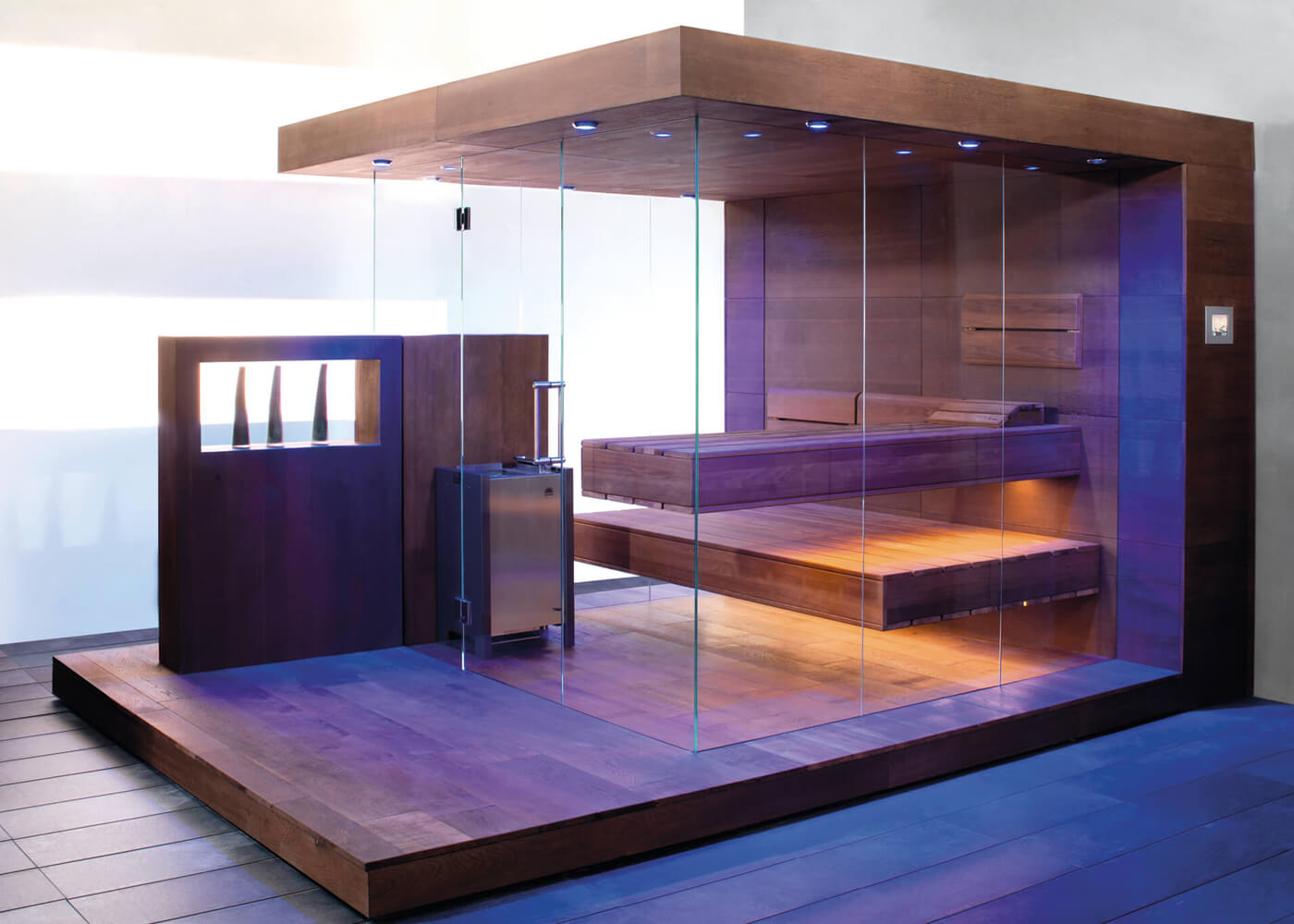
Which sauna location is ideal? What type of sauna?
If you are planning an indoor sauna, you should consider where you feel comfortable while sauna bathin and and where enough space is available for your sauna: for example, you could convert a former children’s room or install the sauna in a sloping roof or in the bathroom. If we plan the sauna for you, we make the most of the place. Ideally there is a shower near the planned sauna or there is a water connection so that a wet area can be created. Your bathroom is therefore ideally suited for sauna installation. In addition, it is optimal if you can go outside near the sauna to move in the fresh air in between the sauna sessions.
However, before you decide on the location, you should consider which WHICH KIND OF SAUNA > is the right one for you: Finnish sauna, bio sauna, steam bath, infrared? A lot depends on this, for example the necessary connections/lines and also the choice of the sauna oven. It is best to get detailed advice in the corso SAUNA SHOWROOMS! >
Planning an indoor sauna: possible floor plans
On the diagram you will find examples of sauna floor plans as well as the arrangement of the sauna benches within the sauna, the positioning of the sauna stove and the glass elements. Examples are a sauna with glass corner, sauna with glass front or sauna with rear wall oven. These sketches are only suggestions – limitless variations are possible.
We support you in planning to make optimum use of your rooms: Our specialist planners have already created countless individual solutions for unusual sauna locations. Since all our sauna projects are planned and built custom-made, the existing space can be used with utmost accuracy.
How big should a sauna be?
What is the right size for a sauna? The space required for your sauna depends on you: how big are you? Do you sit or lie down? If you only use your sauna while sitting, you will find a place for your sauna even in a relatively small niche. If you want to lie comfortably, we recommend an internal dimension of around 200 cm (smaller depending on your height if necessary). In order to determine the actual space requirement, the wall thickness of the sauna and – as soon as the sauna connects to a wall – a wall spacing must be added to the interior dimension. We will be happy to show you in detail how big your sauna will be complete: example calculation >
We recommend a visit to the corso sauna exhibition: there you can try out the sauna benches and we can tailor the sauna planning exactly to you and your size. It’s worth it! SAUNA EXHIBITIONS >
Which floors are suitable?
The sauna cabin itself has no floor, which means that the sauna is placed on the existing floor. A sauna should never be placed on laminate or carpet. Floors made of plastic, ceramic, exposed concrete or stone are best suited..
Wooden floors are only suitable to a limited extent because the infusions and drops of sweat can come into contact with moisture.
The floor should be soundproofed and thermally insulated. Optionally, a wooden or PVC foot grate can be placed on the existing floor.
Which power connection and which lines are required?
For the operation of a sauna heater up to 9.0 KW, at least one/if any multiple power connections with 400 V high current are necessary. If you are planning a free-standing sauna heater in a glazed sauna corner, it makes sense to lead an empty pipe under the screed to the furnace position if feasible. This allows the furnace to be connected without a visible cable. SAUNA HEATER >
If a 400 V connection cannot be placed, please consult us in advance to extend the cable routings. For heater outputs of more than 9.0 KW, we create a cable pull list for your electrician as part of sauna planning. The sauna heater and control unit must be connected by an approved electrician. The electrician then also ensures the connection to the residual current circuit breaker of the house.
A 230 V connection is required for sauna lighting. Depending on the sauna equipment, additional connections may be required, e.g. for HiFi or for connection to web modules (smart home/app controllers). This should be coordinated in advance in order to avoid subsequent work.
What should I consider in a bio sauna?
When planning a bio sauna, other points have to be taken into account: A continuous exhaust air line to the outside is necessary in order to actively lead the humidity out of the room after the use of the sauna (important for the avoidance of mold formation). This exhaust air line may not exceed a length of 3 meters. When a cold water connection is placed, the evaporator of the bio-combi-heater can optionally be connected directly to ensure a comfortable, durable water supply. All information about the bio sauna and other TYPES OF SAUNA >
Since we have our corso sauna, I am much more relaxed.
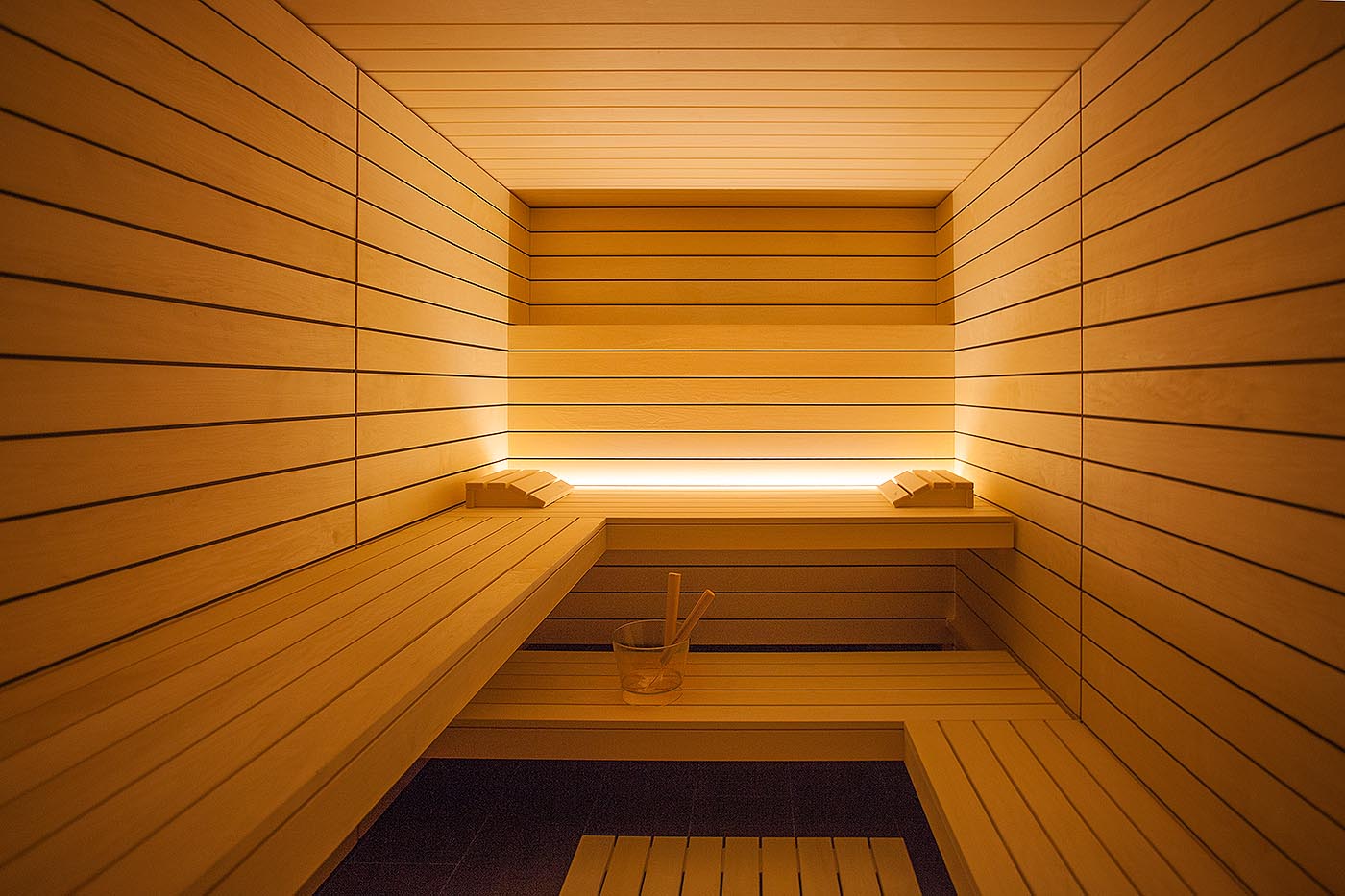
Types of wood: Which sauna wood is ideal?
The sauna wood is the most important material of your sauna. It is a renewable, natural raw material that can be processed in many ways to make your sauna optimal. In addition, wood is a natural heat insulating system: it absorbs the heat and gently releases it back to the interior, making the sauna feeling pleasant. And it simply creates a cozy, homely atmosphere.
Typical types of sauna wood are, for example, aspen, spruce, oak or hemlock – but indeed there are more than 100 varieties to choose from. See here which types of wood are particularly popular and what you like best: SAUNA WOOD >
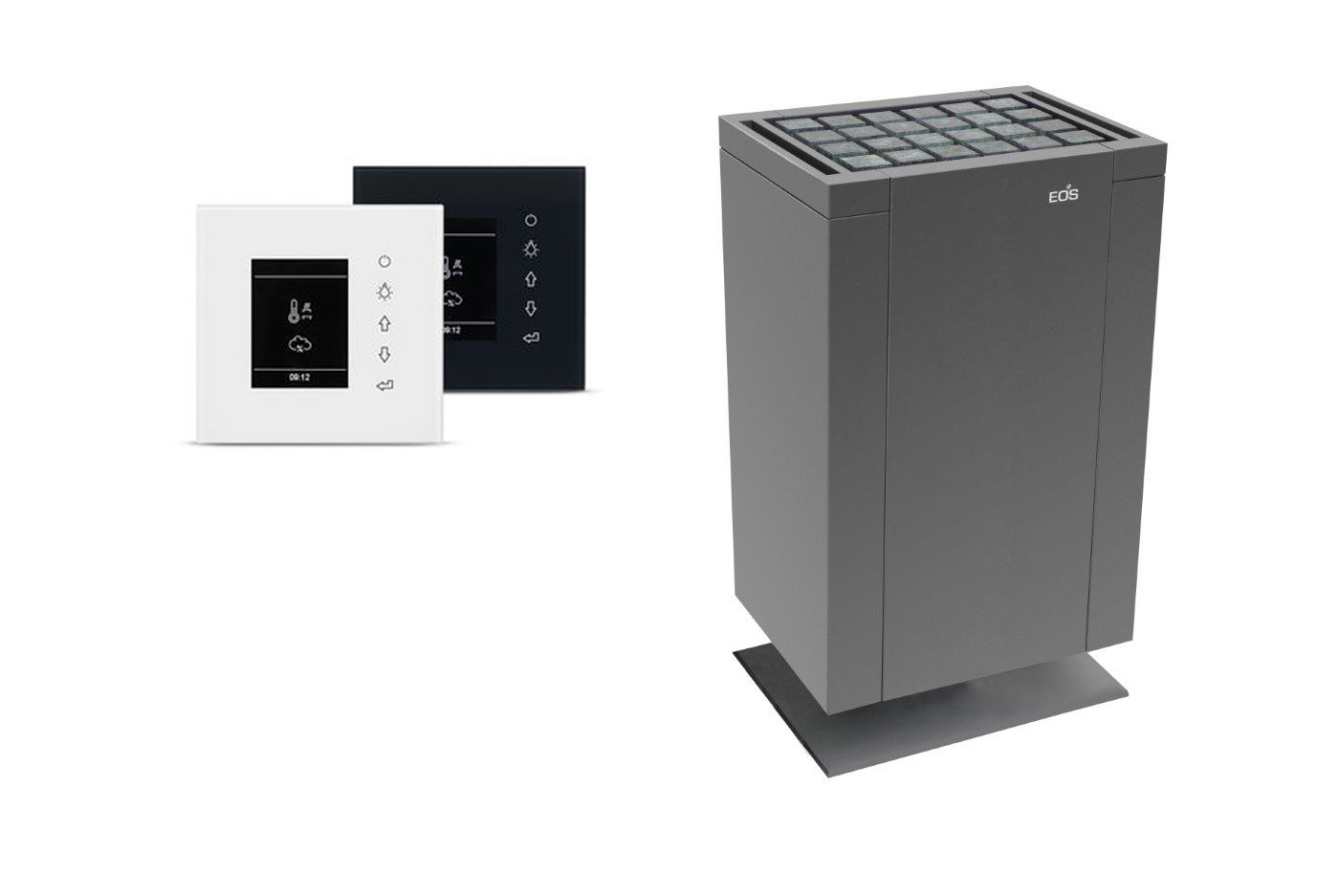
Which sauna heater is needed?
Every SAUNA HEATER > is different! Not only the kW power of the heater is crucial, but also the functionality. Therefore, it is important to deal with the question of which sauna bath form is right for you: do you want “only” to use your sauna at the typical Finnish climate (dry + hot)? Or would you like to use your sauna either as a Finnish sauna and also as a bio sauna (mild + humid)? In the latter case, it is called a so-called combi-heater, which is equipped with an additional evaporator. You can then switch this evaporator on or off, so that your sauna runs either in Finnish-dry operation or as a bio sauna with corresponding water evaporation for a mild-humid climate.
Your sauna is an acquisition for life: take your time and get detailed advice. We look forward to talking to you! CONTACT >
Sauna design with glass: what to consider?
The temperature of a sauna rises to up to 100 degrees. The sauna wood heats up slowly and releases the heat back into the interior of the sauna in a pleasant way. Glass, on the other hand, cannot absorb moisture and therefore radiates the heat strongly back. The temperature then feels higher than it actually is. Therefore, it is important not to use too much glass, because the sauna itself simply “lives” from the wood and its pleasant, natural characteristics. It is therefore important to have a balanced ratio so that the sauna remains pleasant and relaxing. As a rule of thumb, a good ratio of 2/3 wood to 1/3 glass applies.
Sauna manufacturer: the partner for your project
Your sauna is a purchase for life. Therefore, you should take the time to choose the most suitable sauna manufacturer for your “project relaxation”. At corso you are at the right address…
- if you are looking for an individually designed custom sauna
- when perfect planning and attractive design are important to you
- if you value the best quality of craftsmanship. Made in Germany.
We are already looking forward to planning the sauna with you!

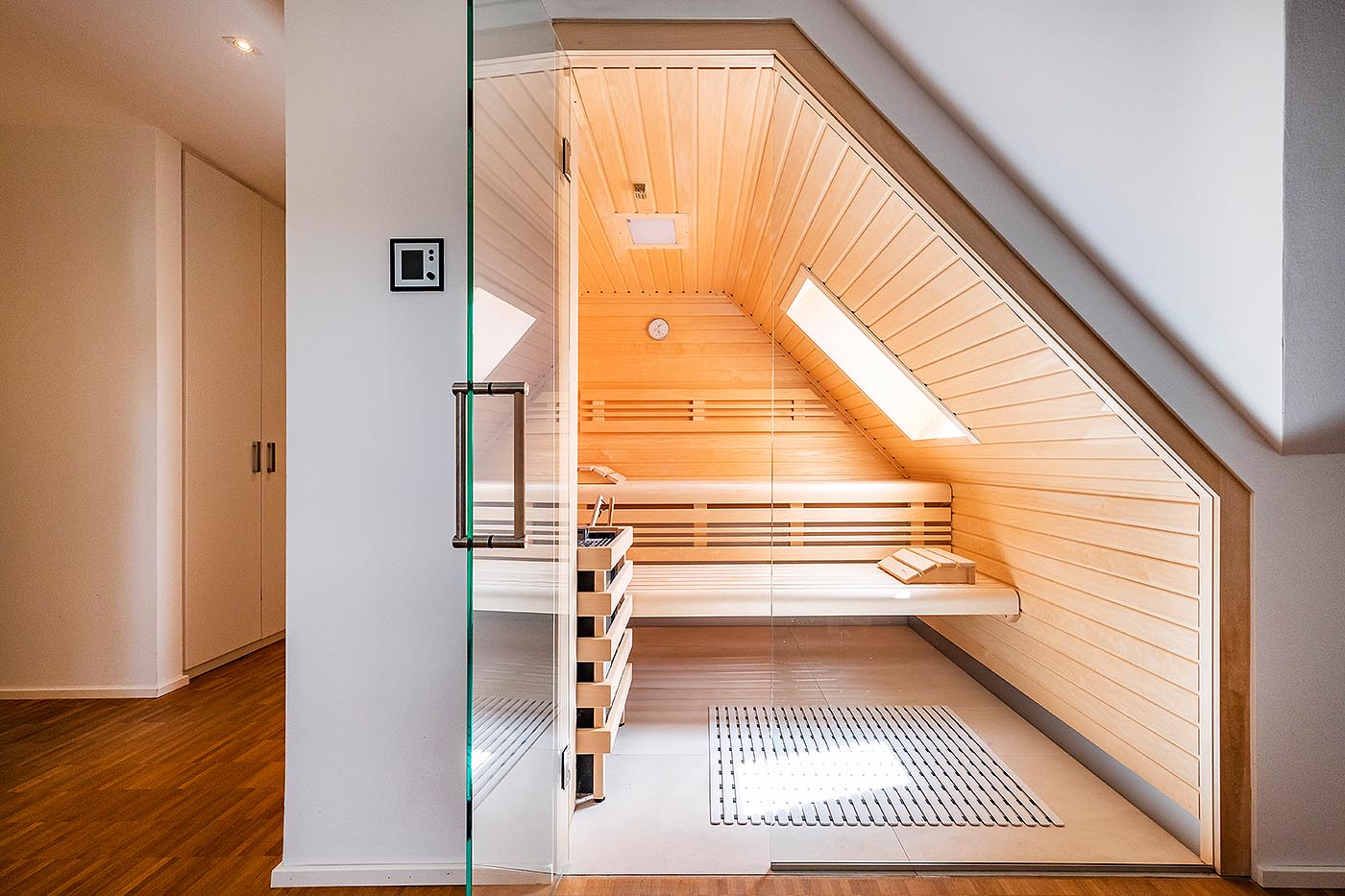
More interesting information about sauna:
What do you need for the sauna?
How to clean a sauna?
What are the health effects of sauna?
Who is not allowed in the sauna?
In addition, we were looking for these questions on the topic:
Which electricity connection for sauna?
Which cable for sauna?
Sauna on which floor?
Where to set up a sauna?
Where to go with the sauna?
